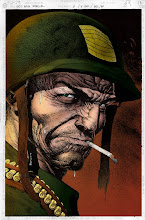
Stonewall Jackson — his very name evokes the image of the solid, immovable Confederate general whose sobriquet, earned at the Battle of 1st Manassas, no longer requires quotation marks. His pious Christian character, service to the church, unwavering commitment to duty, affectionate role as husband and father, as well as his magnificent service to Virginia were carefully recorded by his close friend Robert Lewis Dabney. Labeled by some a religious fanatic, General Jackson was simply a consistent biblical Christian who lived out his faith every day, seriously and without compromise. The battle accounts in The Life and Campaigns of Stonewall Jackson resonate with the first-hand knowledge of a man who has seen the face of battle, as Major Dabney often did as General Jackson’s adjutant in the Valley Campaign. His account of military life in the field with General Jackson provides poignant insight into the character of the General as they discuss theology and military history, pray together, and gallop to the sound of the guns. Jackson’s theology was supremely orthodox, being rooted in the biblical tradition of Knox, Calvin, and Edwards.
Dabney writes of Jackson (pg. 106-107), “Devotion was the very breath of his soul. Once only was he led to make a revelation of these constant aspirations, to a Christian associate peculiarly near to him; and his description of his intercourse with God was too beautiful and characteristic to be suppressed. This friend expressed to him some embarrassment in comprehending literally the precept to “pray always,” and to “pray without ceasing,” and asked his help in construing it. He replied that obedience ought not to be impracticable for the child of God. “But how,” said the other, “can one always be praying?” He answered that if it might be permitted to him, without suspicion of religious display, he would explain by describing his own habits. He then proceeded, with several parentheses, deprecating earnestly the charge of egotism, to say that, besides the stated daily sessions of secret and social prayer, he had long cultivated the habit of connecting the most trivial and customary acts of life with silent prayer. “When we take our meals,” said he, “there is the grace. When I take a draught of water, I always pause, as my palate receives the refreshment, to lift up my heart to God in thanks and prayer for the water of life. Whenever I drop a letter into the box at the post-office, I send a petition along with it, for God’s blessing upon its mission and upon the person to whom it is sent. When I break the seal of a letter just received, I stop to pray to God that he may prepare me for its contents, and make it a messenger of good. When I go to my class-room, and await the arrangement of the cadets in their places, that is my time to intercede with God for them. And so of every other familiar act of the day.” ‘But,” said his friend, “do you not often forget these seasons, coming so frequently?” “No,” said he, “I have made the practice habitual to me; and I can no more forget it, than forget to drink when I am thirsty.” He added that the usage had become as delightful to him as it was regular.”
Stonewall's gallant deeds, virtuous conduct, and fervent prayer still move our hearts with admiration. He shows us how a Christian soldier should live and die.
































.svg.png)





5 comments:
Stonewall? Didn't we (the Yanks) win that war? "Solid, immovable"....not in the end....
I love getting a rise out of my southern sympathizin' friends.
My fore fathers were from the Cumberland Gap area of Tennessee and fought on the Northern side. They were mountain hill billies that probably did a little farming and tobacco growing. My great-great-great grand daddy was a Corporal because he could read and write; his brothers couldn't so they were the lowest of the low in the Army. Having said all that, I am a Southern sympathizer...they got all the good Generals.
Cumberland Gap? Didn't we burn that to the ground?
Good generals should win.
Yes, you are correct sir. But, the CSA was winning the War of Northern Aggression for the most part until Grant and Sherman took charge.
We just don't have the caliber of these kinds of Generals anymore and probably will never again.
So, looks like the North did have the better generals?
Post a Comment